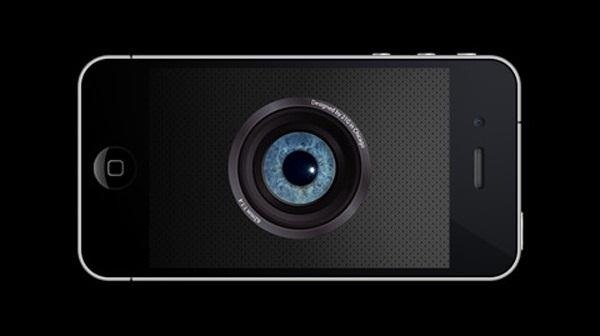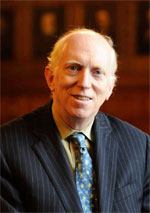 Over the summer I did a series of pieces on Dr. Michael Katz, who got busted by a judge for lying under oath about the length of the medical-legal exam that he did on the defendant’s behalf. He was claiming it was 10-20 minutes or so, yet a secretly recorded video had him at just one minute and 56 seconds. The judge wasn’t pleased.
Over the summer I did a series of pieces on Dr. Michael Katz, who got busted by a judge for lying under oath about the length of the medical-legal exam that he did on the defendant’s behalf. He was claiming it was 10-20 minutes or so, yet a secretly recorded video had him at just one minute and 56 seconds. The judge wasn’t pleased.
A mistrial was declared and the good doctor was referred to the District Attorney for possible perjury prosecution, to the Administrative Judge for possible civil contempt and to the Department of Health – Bureau of Professional Medical Conduct to evaluate his fitness to practice medicine.
I covered a lot of angles in that series, even doing original research on the length of exams by other “frequent flyer” experts that insurance companies rely upon, and finding an average length of under five minutes for those I looked at.
But one piece was missing from my series: Is it permissible for plaintiffs’ representatives that accompany them to these exams to surreptitiously videotape the doctor doing the exam, and if this is done, does that video need to be exchanged? The reason it was missing is that there really isn’t much in the way of law in this area.
To be sure, Justice Duane Hart‘s initial reaction in the Katz case was that this was improper conduct by the plaintiff, and initially sanctioned him. That sanction was withdrawn, but in the process he had also declared a mistrial on a case that had been going for a month. The problem that Justice Hart had to wrestle with is that there is no statute governing this and little case law.
This week on that subject, in the New York Law Journal, comes an article by Ben Rubinowitz and Evan Torgan (Turning the Table: Cross-Examining IME Doctor Using Video of Exam, $ub). They are, by all measures, well respected attorneys here in New York, and these guys frequently lecture on various aspects of personal injury practice.
In the absence of either statute or case law to analyze whether it’s acceptable to video, they turn to ethics opinions. But:
[T] he ethical opinions regarding secret video-recording specifically fail to provide clear guideposts for attorneys. For example, the American Bar Association, in opinion 01-422, found that, in general, undisclosed taping by an attorney or his agent was not in and of itself prohibited. In accordance with that opinion, The New York City Bar modified its previously held position that undisclosed videotaping was unethical, holding that such conduct was permissible, but only where the lawyer “has a reasonable basis for believing that disclosure of the taping would significantly impair pursuit of a generally accepted societal good.”
What constitutes “a reasonable basis for believing that disclosure of the taping would significantly impair pursuit of a generally accepted societal good”? Good question, glad you asked. And no, I don’t have the answer because such answer does not (yet) exist. Do I think it is a generally accepted societal good to catch a doctor doing a 2-minute exam that he claims was a 15-minute exam? Yep, I sure do. The scoundrels should be purged from our midst if we would like our system of justice to have more integrity.
It’s unclear to me why recording such exams should be a problem. Defendants, after all, are free to do secret surveillance of plaintiffs. Why shouldn’t a plaintiff be able to do likewise to the defense medical examiner, especially when we have excellent reasons to believe there is widespread corruption going on? The doctor isn’t even a party to the action.
Back to Rubinowitz and Torgan:
As it relates to personal injury actions, defense attorneys have become well versed in the use of videos to discredit a plaintiff’s claim of injury. While the law regarding the surreptitious taping of a plaintiff in a personal injury action has developed over many decades the issue of the propriety of the taping in the first instance and its disclosure seems to have been answered: There is no prohibition against such taping and there are now definitive time periods in which disclosure of the video must be revealed.
When it comes to the videotaping of the IME, however, the law is not so clear. In New York not only is there no statute directly on point but there is a paucity of case law supporting or prohibiting such conduct. The question that will likely be addressed in the near future is whether the plaintiffs attorney or his agent should be permitted to videotape the independent medical examination, and if so, when disclosure should be made. Many see no difference between the defendant’s right to surreptitiously videotape the plaintiff and the plaintiff’s right to surreptitiously videotape the IME. Both the plaintiff and the defendant are seeking to use the video for a similar purpose: to discredit the credibility of an individual through the use of extrinsic proof.
The sooner this gets resolved by the appellate divisions, the better, perhaps with a bit of help from the various ethics committees. But from were I sit, there is simply no sound reason to object to the practice. Every other formal part of litigation where evidence may be presented to a jury is recorded somehow, without exception. That a doctor would be able to claim something happened at a medical-legal exam — which is very much a formal procedure — when the plaintiff says no such thing happened, is very easily remedied.
Why would anyone be upset about making the process more honest? Why should there even be ambiguity over how long the exam took or whether certain tests were done? As I noted over the summer when discussing next steps for this problem, technology is now completely unobtrusive. And with Google Glass coming along, the filming couldn’t be easier.


